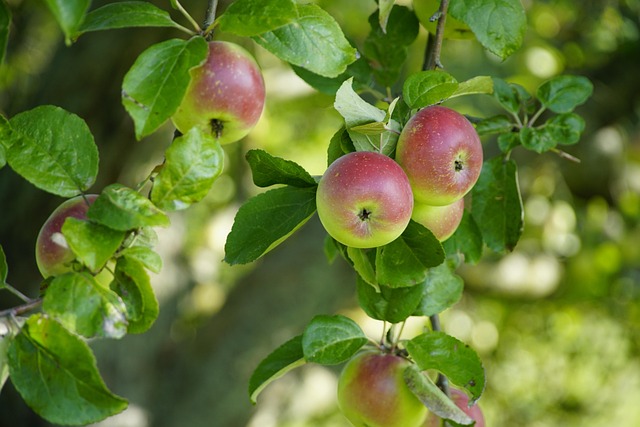Organic Nutrients for Plants Care

Healthy plants start with healthy soil, and the foundation of thriving soil lies in the nutrients it provides. Organic nutrients for plants are natural substances derived from plant, animal, or mineral sources that nourish the soil and, in turn, the plants growing in it. Unlike chemical fertilizers, which provide nutrients in concentrated forms, organic nutrients release essential elements gradually, improving soil structure, enhancing microbial activity, and promoting long-term fertility.
The importance of organic nutrients extends beyond immediate plant growth. They help retain soil moisture, prevent erosion, and foster a balanced ecosystem in the garden. Nutrients such as compost, manure, green manure, bone meal, and plant-based extracts enrich the soil with nitrogen, phosphorus, potassium, and trace elements that are crucial for healthy plant development. By providing plants with these natural nutrients, gardeners encourage robust root systems, vibrant foliage, higher yields, and increased resistance to pests and diseases.
Moreover, organic nutrients support sustainable gardening practices by reducing dependence on synthetic chemicals that can harm the environment, pollute water sources, and degrade soil health over time. They represent a holistic approach to gardening—one that aligns plant care with ecological responsibility. Whether for home gardens, urban green spaces, or large-scale organic farms, incorporating organic nutrients ensures a healthier, more resilient garden ecosystem.
In today’s world, where environmental sustainability is paramount, understanding and utilizing organic nutrients for plants is not just a choice—it is a commitment to long-term garden health and environmental stewardship.
Understanding Organic Nutrients for Plants
Organic nutrients for plants are essential for promoting strong, healthy, and productive gardens. Unlike chemical fertilizers, which provide nutrients in concentrated synthetic forms, organic nutrients release essential elements slowly. This slow release not only allows plants to absorb nutrients efficiently but also improves overall soil health. Derived from natural sources such as compost, animal manure, bone meal, seaweed extracts, and green manures, organic nutrients are safe for the environment, humans, and beneficial soil organisms.
Benefits of Organic Nutrients
- Enhanced Soil Structure
Organic materials like compost and manure improve soil aeration, water retention, and drainage. This creates an ideal environment for plant roots to thrive. Healthy roots lead to stronger plant growth, improved flowering, and higher crop yields.
- Support for Beneficial Microorganisms
Organic nutrients encourage the growth of beneficial soil microbes. These microorganisms decompose organic matter, fix nitrogen naturally, and break down nutrients into forms that plants can readily absorb. This creates a dynamic soil ecosystem, which is the foundation of sustainable gardening.
Types of Organic Nutrients and Their Roles
Nitrogen-Rich Nutrients
Green manures, legume cover crops, and compost provide nitrogen, which promotes leafy growth and lush, green plants.
Phosphorus Sources
Bone meal and other phosphorus-rich materials stimulate strong root development and flowering, helping plants grow robustly.
Potassium-Rich Nutrients
Seaweed extracts, wood ash, and other potassium-rich nutrients improve overall plant health, disease resistance, and fruit quality.
By combining these nutrients in a balanced way, gardeners can meet the specific needs of each plant type while maintaining long-term soil fertility.
Long-Term Soil Sustainability
Organic nutrients have lasting effects on soil health. Unlike chemical fertilizers, they do not cause nutrient leaching, soil acidification, or microbial imbalance. They replenish essential elements naturally, reduce reliance on synthetic chemicals, and contribute to eco-friendly gardening. Additionally, they are safe for children, pets, and pollinators, making them ideal for home gardens and urban green spaces.
Best Practices for Using Organic Nutrients
- Regular Applications: Use compost, mulch, or liquid plant extracts to supply a steady stream of nutrients throughout the growing season.
- Crop Rotation and Intercropping: Rotate crops and plant complementary species to maximize nutrient availability and prevent soil depletion.
- Cover Cropping: Use green manures and cover crops to naturally enrich soil while protecting it from erosion.
By implementing these practices, gardeners not only enhance plant growth but also create a self-sustaining ecosystem that supports biodiversity and long-term soil fertility.
Conclusion
Organic nutrients for plants are the foundation of sustainable and healthy gardening. By enriching soil naturally, they provide essential elements such as nitrogen, phosphorus, and potassium while supporting beneficial microorganisms that enhance soil fertility and plant resilience. Unlike chemical fertilizers, organic nutrients improve soil structure, retain moisture, reduce erosion, and promote a balanced ecosystem, ensuring long-term productivity and environmental safety.
Incorporating compost, manure, green manures, and plant-based extracts into your gardening routine fosters strong root systems, vibrant growth, higher yields, and natural resistance to pests and diseases. These eco-friendly practices not only benefit your garden but also contribute to a healthier planet.
For gardeners and farmers looking to achieve sustainable growth and maximize crop health, adopting organic nutrients is the smart choice. Explore quality organic solutions and take your gardening to the next level with Indochem Agrovet’s range of organic plant nutrients.
Ready to elevate your garden naturally?
Explore Indochem Agrovet’s premium range of organic plant nutrients and give your plants the care they deserve!
📞 Call us: +91 9830 720311 / 83369-77770
🌐 Visit: https://indochemagrovet.in
Mumbai: Parewala House No.4 Vakola, Santacruz (East), Mumbai 400055
Kolkata: Block – DD, House no-197, 1st Floor, Street no-295, Action Area-1, New Town, Kolkata, West Bengal 700156

